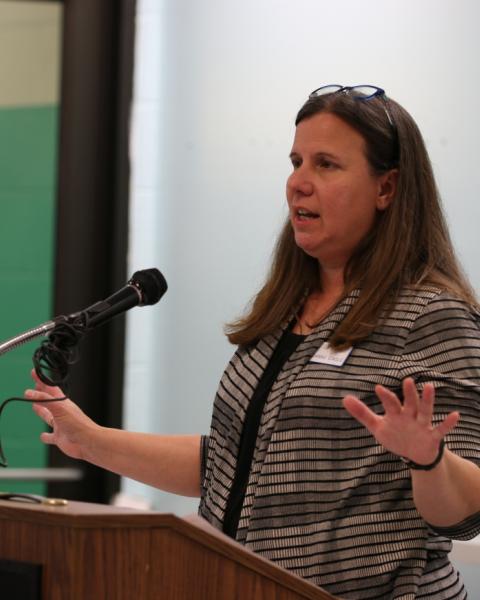Improving your Virtual Facilitation: Quick Tips and Upcoming Training Opportunities
Addressing the challenges that communities face requires stakeholders to work together effectively in groups. How those groups are facilitated has a significant impact on their effectiveness and ultimately, their impact and successes in the community. Many of us have experienced being part of groups that struggle to identify goals, stay on track, maintain involvement, and move projects forward. UNH Cooperative Extension’s facilitation training has helped hundreds of community members across New Hampshire improve their facilitation skills and become a resource to help groups succeed.
1. Set a realistic, clear agenda and timeline and share it with participants ahead of time. It is important when planning virtual meetings to acknowledge the group’s limited capacity to stay focused in a virtual format and to use the time as effectively as possible. If the meeting will need to go longer than an hour, you may want to break it up into shorter segments or, at minimum, plan regular breaks.
2. Plan the structure of the meeting with the goal and agenda in mind. Pre-planning how you are going to engage participants in discussion, decision making, action planning, etc. is essential to success. Varying the types of activities will also help people stay engaged.
3. Practice using tools ahead of time. There are many tools available to help us make our meetings more interactive, but you don’t want to find out during the meeting that the tool you are using isn’t compatible with the platform on which you are meeting, or that your settings won’t allow participants to engage. Logging into your meeting platform (Zoom, MS Teams, Webex, etc.) in advance to practice running polls, breakout rooms, etc. will save you and the participants a lot of stress later.
4. Consider the comfort level of your group with technology when you identify tools and strategies to use. While it may be tempting to use the coolest new tools out there, the best tools for your group will be the ones that you and they are comfortable using. Avoid using tools that have a steep learning curve for your group members. If your goals will be enhanced by adding a new technology, allow time for participants to learn and become comfortable using the tool before they need to use it in your meeting.
5. Plan for adequate staffing. While it isn’t always possible, it can be extremely helpful to share responsibilities for facilitating virtual meetings. It is very difficult to facilitate the agenda, discussions, stay on top of chat responses, and manage participant and technical challenges. For example, if you are going to use the chat box for responses, having one person manage that throughout the meeting can be very helpful.
6. Clearly communicate group norms that you will be using at the beginning of every meeting. Will your participants be sharing video or audio or both? Will they use the raise-your-hand feature and wait to be acknowledged before they unmute or just jump in? Will you use the chat box or allow members to share their screens? Having a standard protocol that participants understand at the beginning of the meeting can avoid much of the confusion and chaos that comes from participants interacting in the meeting in different ways.
7. Be flexible. Many factors contribute to the success of a virtual meeting and not all can be anticipated. If, despite your best planning, a strategy or tool is not working for your group, don’t be afraid to acknowledge that and work with the group to change course.
Over the last few years, more and more groups have moved to virtual meeting formats. While the basic principles of good facilitation apply to both in-person and online meetings, how those strategies are implemented looks very different in a virtual environment. To meet this need, UNH Cooperative Extension has partnered with our colleagues at the University of Maine Cooperative Extension, the University of Virginia Cooperative Extension, and the University of Vermont Extension to offer training focused on facilitation in virtual formats.
Our two session workshop, offered in September 2024 focuses on applying best practices for facilitation to designing and managing meetings. Participants will learn tools and strategies to help groups succeed and have the opportunity to practice specific techniques for brainstorming, prioritizing, action planning, and decision making.
Get more information and register here for the fall 2024 workshop

